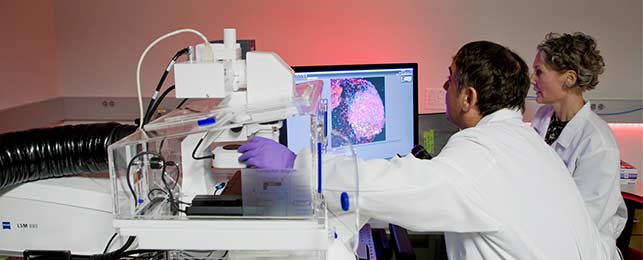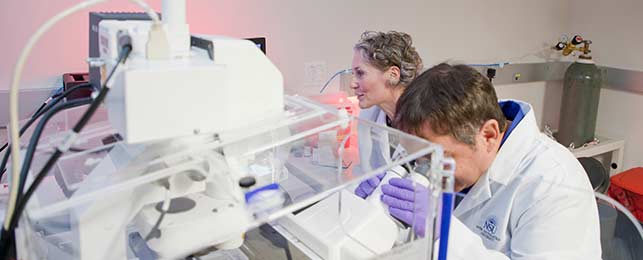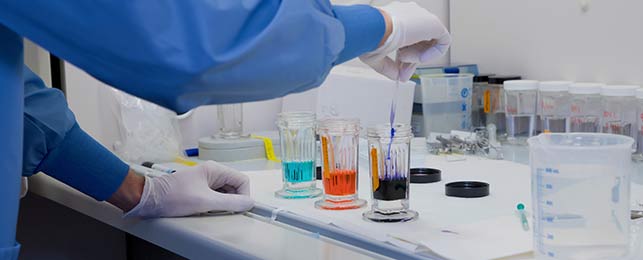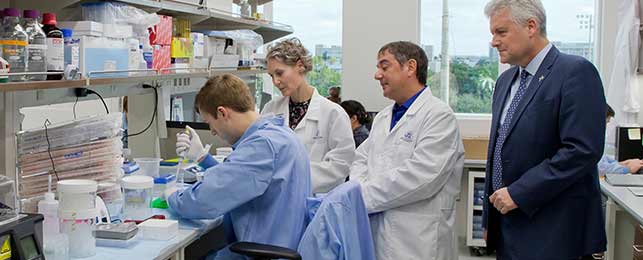NSU Researchers Investigate Stem Cells as Better Option for Patients with Heart Disease
Heart disease is the leading cause of death for both men and women. Currently, heart transplants are the only treatment option for patients with significant damaged heart tissue typically caused by a heart attack – a method that is costly, difficult to secure a match and subject to additional major health complications following surgery.
Researchers from the Nova Southeastern University (NSU) Cell Therapy Institute and Karolinska Institutet (KI) in Sweden are investigating solutions using therapeutic stem cells that could regenerate damaged heart tissue, with the ultimate goal of eliminating the need for transplants in some patients.
The cardiac research unit is led by Vladimir Beljanski, Ph.D., assistant professor, Department of Biomedical Sciences, NSU College of Allopathic Medicine (M.D. College), in collaboration with Karl-Henrik Grinnemo, M.D., Ph.D., visiting research professor from KI and Uppsala University in Sweden.
Grinnemo, a cardiac surgeon, is investigating new clinical strategies for repair of heart tissue by isolating various cardiac stem cells and determining cells that have the best regenerative properties. Beljanski, a basic scientist, studies approaches that will increase therapeutic efficacy of injected cells. He manipulates therapeutic properties of such cells by modulating autophagy, the process cells use to prolong their life when they are exposed to adverse environments, including lack of nutrients. He is also examining how autophagy impacts therapeutic cells’ ability to communicate with damaged cells through secreted small vesicles (called exosomes) which contribute to tissue repair and result in more successful outcomes.
Simultaneously, Cecilia Osterholm Corbascio, Ph.D., a visiting research professor from KI, is looking at the differences in proteins that surround cells and provide support for cell growth, or connective matrix, between normal and diseased heart valves in order to determine the best type of stem cells to regenerate heart valves.
Together, these research teams are aiming to optimize novel and better treatment for patients with heart disease and other damaged organ tissues.



